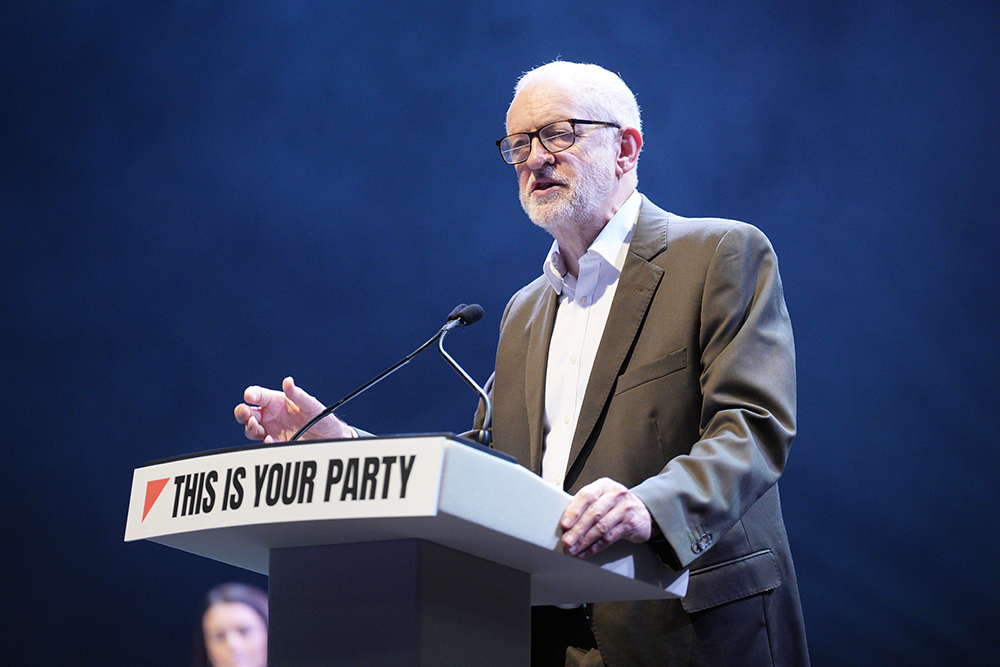There has been no honeymoon for Keir Starmer after his election victory in July. That is hardly a surprise as it was a ‘loveless landslide’ that Labour achieved, winning just 34 per cent of the popular vote. In the two months since the general election, Starmer’s approval rating has dropped still further, with two-thirds of Brits sceptical that he is a force for the good.
Starmer should use Francois Hollande’s presidency as a case study in hubristic failure
Yet Starmer appears to be deluded about his popularity. The same delusion afflicted Francois Hollande when he was elected president of France in 2012. Like Starmer, he didn’t understand that his victory owed more to the failings of the opposition than his own star quality.
Nicolas Sarkozy had been elected president in 2007 on a pledge to crack down on crime and reinvigorate the economy; instead he became ‘president bling-bling’, a leader obsessed with the trappings of power.
French conservatives took their revenge in 2012, either staying at home or reluctantly casting their ballot for Hollande in the second round run-off. The geekiness of the Socialist was seen as a welcome change after the brashness of Sarkozy.
It didn’t take long for the public to realise they’d made a terrible mistake. Hollande’s approval rating soon sank to just 20 per cent, the lowest in the history of the Fifth Republic, as France became the butt of British jokes.
No one relished the ‘French bashing’ more than prime minister David Cameron; a month after Hollande’s election, he announced he was ready to ‘roll out the red carpet’ to business leaders fleeing the 75 per cent tax rate on earnings above €1 million (£780,000) that Hollande had swiftly implemented.
He was also quick to go green, passing an energy transition bill that committed France to cutting its nuclear power by 50 per cent in favour of renewable energy.
It was part of his progressive agenda, and Hollande didn’t care if it alienated millions of working-class voters. Hollande was following the advice of the dominant left-wing think-tank, Terra Nova, which in a 2011 report had outlined the future strategy for the Socialist party: ‘The France of tomorrow is above all united by cultural and progressive values,’ the report concluded. ‘It wants change. It is tolerant, open, optimistic and inclusive…it is opposed to an electorate that defends the present and the past against change.’
Hollande’s government passed the controversial gay marriage and adoption bill, which provoked huge protest rallies across the country. The Socialists regarded protestors as intolerant bigots, as they did those who objected to mass immigration.
Legal and illegal immigration exploded under Hollande; in 2011 8.6 per cent of the population were immigrants, a figure that had risen to 9.9 per cent by the end of the decade. Of these 6.6 million people, nearly half had been born in Africa.
Then there was the rise of Islamic extremism, first seen in March 2012 when a terrorist murdered three Jewish children in Toulouse. Hollande allowed Islamism to rise unchecked until, in 2015, a wave of barbaric attacks swept France, resulting in nearly 250 deaths in 18 months.
Marine Le Pen, leader of what was then called the National Front, accused Hollande and his government of being ‘out of its depth, lost, as stunned as a rabbit in the headlights of a car’. Le Pen charged Hollande with ignoring Islamism and instead obsessing about identity politics, which was ‘provoking additional tensions’ and ‘pitting the French against each other’.
The one demographic with whom Hollande never engaged was the white working-class
The one demographic with whom Hollande never engaged was the white working-class, once the bedrock of the Socialist party. They had become an embarrassment; in private, Hollande allegedly mocked them as the ‘sans-dents’ (without teeth). This insult – which Hollande denied using in a derogatory way – was exposed by Valérie Trierweiler, Hollande’s companion when he came to power but who was subsequently ditched for a young actress. Trierweiler took her revenge in her 2014 memoir. ‘He presented himself as the man who doesn’t like the rich,’ she wrote. ‘In reality, the president doesn’t like the poor.’
The revelation was seized on by Le Pen, who said: ‘Hollande despises the ‘sans-dents‘, the Front National defends them.’
By the time of the 2017 presidential election, Hollande knew he was so despised there was no point standing for re-election. The man who did represent the Socialist Party, Benoit Hamon, received just 6.3 per cent of the vote; Le Pen’s share was 21.3 per cent.
The majority of her voters were the white working-class, men and women who had once voted for the left. But realising they didn’t fit Hollande’s ‘France of tomorrow’ they switched allegiance.
In his victory speech in May 2012, Hollande proclaimed: ‘Tonight, there are not two Frances, there is only one France, only one nation that is united with the same destiny… we have to repair, recover, unite.’
Hollande never had any intention of presiding over one nation; he came to power contemptuous of the ‘sans-dents’ and his government demonstrated this disdain from the outset.
In his victory speech two months ago, Starmer spoke of an ‘age of national renewal’ in which Labour would ‘rebuild our country’. Does this reconstruction entail banning smoking in pub gardens, cutting winter fuel payments for the elderly and bringing in millions more migrants? Is this how Starmer wants to build his ‘Britain of tomorrow’, while labelling those who object ‘far-right’ and ‘populist’?
Starmer should use Francois Hollande’s presidency as a case study in hubristic failure. If he doesn’t, the PM will soon discover that the vast majority of the British are as resistant to change as the French were a decade ago.








Comments